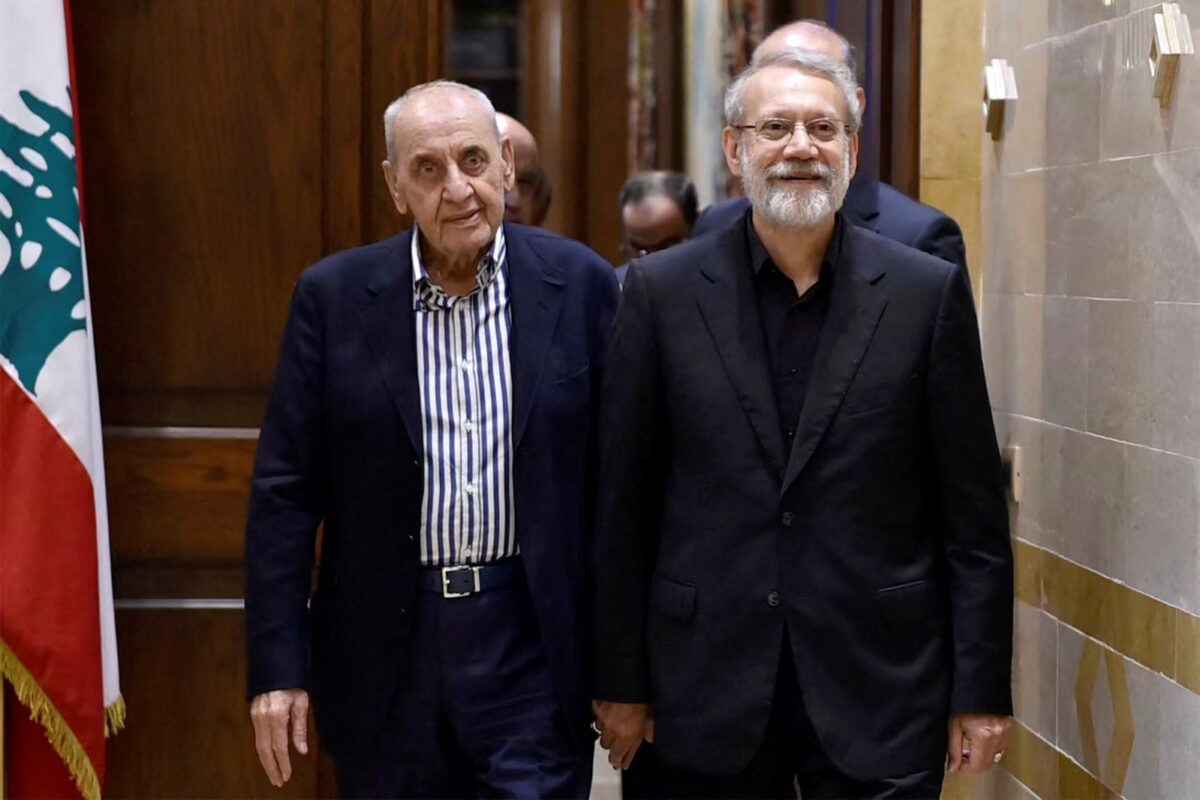
On the 47th anniversary of the disappearance of Imam Musa al-Sadr, Speaker of Parliament Nabih Berri delivered a speech that, on the surface, seemed to recycle familiar rhetoric. Yet in substance, it revealed with unprecedented clarity the very nature of Lebanon’s crisis: the head of the legislature transforming the parliament’s podium from a platform of constitutional defense into a pulpit that justifies the dominance of Hezbollah’s weapons.
Berri’s central claim was that “satanic minds are more dangerous to Lebanon than the resistance’s weapons.” The implication is striking: Lebanon’s greatest threat is not a militia arsenal that lies outside state control, but the critical voices daring to question its legitimacy. In this logic, thought is more dangerous than rockets, debate deadlier than missiles. This inversion alone captures the system’s mindset—criminalizing reason while glorifying the gun.
Even more telling was Berri’s framing of Hezbollah’s weapons as a matter of “honor,” while simultaneously restricting any discussion about them to a “calm, consensual dialogue.” Here, honor is no longer tied to the state’s sovereignty or its constitution, but to the arms of one faction that has forced Lebanon into endless rounds of dialogue, each designed to avoid genuine accountability. By reducing national debate to ceremonial rituals, Berri erases parliament’s legislative role and casts himself not as Speaker, but as Hezbollah’s advocate.
What makes the moment so paradoxical is that Berri was speaking not as a party boss, but as Speaker of Parliament—an office meant to safeguard the constitution. Instead, he has become its chief violator, turning the commemoration of Imam Musa al-Sadr—a man whose project centered on justice and institutions—into a platform that affirms Lebanon as little more than a façade for an extra-state strategy.
Berri’s address also carried veiled threats. He warned against “minds betting on Israel” and against “ignorance and fanaticism” that could bring ruin—classic code for branding anyone who opposes Hezbollah’s hegemony as a collaborator. Calls to implement a ceasefire or restrict arms to the state are thus translated as treason. Since 1990, this formula has kept Lebanon hostage: silencing domestic dissent through accusations of collaboration, while foreign patrons hold the real levers of power.
The contradiction is stark. Berri admits that Israel has violated the ceasefire, yet insists that the answer is not to build a strong state and army, but to entrench a parallel militia state. In reality, Hezbollah’s arsenal does not protect Lebanon; it protects the ruling system, enabling it to blackmail both its citizens and the international community.
When Berri says he is “open” to dialogue on a “national defense strategy,” he is simply recycling the same playbook of Doha and earlier national dialogues—open-ended, guarantee-free, devoid of political will. With over three decades presiding over parliament, Berri knows well that endless committees and dialogue sessions mean one thing only: the indefinite preservation of Hezbollah’s weapons and the paralysis of the Lebanese state.
The real danger is not just Berri’s words, but the position he holds. As Speaker, he embodies the parliament—the supposed voice of the people. His speech exposes the inversion of Lebanon’s order: weapons have become “honor,” critical thought a “threat,” and sovereignty a hollow slogan.
Berri presents himself as both protector of his sect and custodian of Lebanon’s internal balance. In practice, he is a partner in perpetuating the national imbalance: consecrating the militia state in the name of the community, legitimizing dysfunction in the name of balance, and prolonging the crisis in the name of dialogue.
The response to Berri cannot be reduced to verbal sparring. It requires exposing the logic behind his words: persuading Lebanese that their salvation lies in accepting permanent militia power. The truth is the opposite. There can be no state while a militia holds arms outside its authority, no parliament under guardianship, no sovereignty under duality.
Lebanon does not need yet another “dialogue” about Hezbollah’s weapons. It needs one decision: to return the monopoly of legitimate force to the state. That is what the constitution dictates, and what any functional political system demands. Anything less is a guarantee of repeated disaster.
Berri’s latest speech was not just a set of words recited at a national commemoration. It was a mirror reflecting Lebanon’s core predicament: authority subordinated to weapons, and weapons shielded by authority. Confronting this reality begins with breaking the monopoly of language and exposing the rhetoric that turns internal occupation into “honor.”
Lebanon was not destroyed by “satanic minds,” as Berri claims, but by the political class that surrendered the state’s right to war and peace to a single faction—and traded away sovereignty for the spoils of power. Most alarming of all is that the man tasked with guarding the constitution has recast himself as the guardian of arms, wrapping the state’s demise in the hollow banners of “honor” and “dignity.”
This article originally appeared in Nidaa al-Watan
Makram Rabah is the managing editor at Now Lebanon and an Assistant Professor at the American University of Beirut, Department of History. His book Conflict on Mount Lebanon: The Druze, the Maronites and Collective Memory (Edinburgh University Press) covers collective identities and the Lebanese Civil War. He tweets at @makramrabah







